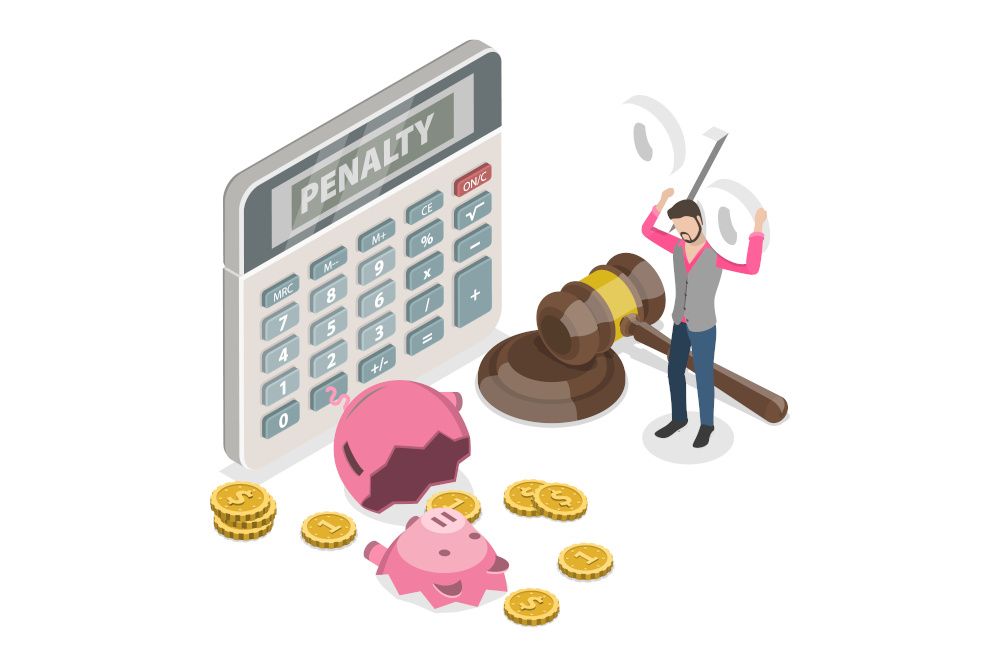FTC is issuing hundreds of civil penalty notices to supplement and food companies. How does it impact your firm?
After the Supreme Court ruled that FTC can no longer collect consumer redress in court, FTC has revived, with vigor, a decades-long enforcement tool: Notice of Penalty Offenses.
FTC no longer has the power to collect monetary fines from companies in federal court cases involving deceptive advertising, but that doesn’t mean the agency is standing down.
After the U.S. Supreme Court in 2021, in the case of AMG Capital Management v. FTC, banned FTC from continuing its decades-long practice of seeking monetary damages from companies in non-civil court cases under Section 13(b) of the FTC Act—money the agency would then use to pay back to consumers as redress—FTC has instead begun ramping up what Commissioner Rebecca Kelly Slaughter called a “long-underused tool.” That tool is a Notice of Penalty Offenses (“notices”).
In a nutshell, a Notice of Penalty Offenses is sent to a company preemptively warning that if the firm makes product claims not backed by competent and reliable scientific evidence, or makes illegal disease-treatment claims, the company can be fined civil penalties if it’s proven that 1) the company knew its conduct was deceptive and violates the FTC Act, and 2) if FTC had notified the company of potential violations—such as with a Notice of Penalty Offenses.
Unlike the consumer redress previously obtained in court under Section 13(b), the civil penalties resulting from a Notice of Penalty Offenses aren’t paid to consumers but rather are paid to the government’s treasury. The financial impact on companies could be significant. FTC can require a company to pay civil penalties of up to $50,120 per violation, which can include every advertisement and every day an ad appears.
In short, consider notices a warning with very, very expensive teeth.
FTC is now issuing notices to companies by the hundreds. Since losing its monetary redress power in 2021, the agency initiated several rounds of mass mailings of notices to a wide range of industries, including the education and direct-sales industries. And on April 13, 2023, the agency sent approximately 670 notices to companies in the OTC drug, homeopathic, dietary supplement, and functional foods space. FTC specified that the companies receiving notices haven’t necessarily engaged in deceptive practices, but the notices warn the companies that if they do so, they could pay civil penalties. The notices do not critique any specific company claims.
These OTC drug, homeopathic, dietary supplement, and functional food companies are “a veritable who’s who of U.S. consumer product companies, with one household name after another identified,” wrote attorney Katie Bond, partner at Keller and Heckman LLP (Washington, DC), in an April 2023 client alert email. Indeed, companies on the list range from CPG giants like Bayer and General Mills to ingredient firms like ADM and BASF.
FTC Breathes New Life into Civil Penalties
Notice of Penalty Offenses have long been one of FTC’s available enforcement tools under Section 5(m)(1)(B) of the FTC Act, but for a long time the agency instead relied on Section 13(b) to obtain monetary penalties from companies in court. Absent that power today, the agency is using notices as a means to monetarily punish violative companies. FTC leaders say they believe monetary consequences are the most effective means of motivating companies to comply with regulations versus just ordering a company to cease bad practices. As Commissioner Slaughter wrote in a March 2023 FTC statement, “Obtaining access to civil penalties for first-time offenders through this Notice is essential to changing the dynamics of the marketplace. Injunctive relief alone cannot, and will not, remediate the harm from these practices, but monetary penalties can send a strong message to potential violators.”
Notices, however, are a less-efficient enforcement method than FTC had under 13(b). In an April 2022 FTC statement, Commissioner Slaughter acknowledged, “Longer-term enforcement strategies such as sending companies penalty offense warnings and rulemaking initiatives take time. And as has been well-documented, proceeding through our administrative process can add years to the timeline of returning ill-gotten gains to the pockets of consumers when compared with our former federal court process and is also subject to Section 19’s abbreviated statute of limitations.”
Plus, attorney John Villafranco, partner at Kelley Drye & Warren LLP (Washington, DC), who Nutritional Outlook interviewed for this article, pointed out in an October 2021 blog post coauthored by his colleague William C. MacLeod, “Yet another hurdle: unlike 13(b) actions, which the FTC can bring on its own, it will have to persuade DOJ to bring civil penalty cases.”
How useful of an enforcement tool will notices ultimately prove to be for FTC? As of now, it remains unclear. For instance, FTC is using past cases of companies found guilty of making unsubstantiated claims as a reference for whether other companies are making similarly violative claims today. But in her client alert, Bond wrote that “Particularly given the cited cases, however, this notice likely isn’t at all that workable against many, if not most, companies on the recipient list.” She added: “Established U.S. consumer product companies simply tend to avoid comparable conduct, and many are also in starkly different industries than those at issue in the cited cases, calling into question how useful the notice might be.”
And Villafranco and colleague Special Counsel Ioana Gorecki questioned in an April 13, 2023, blog post “whether the FTC can use dated decisions from decades ago to justify civil penalties for first-time offenses occurring today; whether the facts and legal standards in place today are sufficiently similar to those present in these dated decisions to satisfy statutory requirements; and whether companies are afforded sufficient due process under an expansive use of this authority.”
What Can You Do?
Those critical questions notwithstanding, what companies should do today, given FTC’s newfound zeal for issuing notices, is obviously to make sure their advertising is substantiated and compliant.
As Villafranco tells Nutritional Outlook, “All companies should engage in regular compliance monitoring, regardless of whether they are on the list. Having said that, now would be a good time for listed companies to conduct an audit to ensure that advertising is within bounds. This is doubly true for companies making health claims, given the FTC staff’s recent release of its Health Products Compliance Guidance. While the guidance does not have the force of law or regulation, it does provide an accurate summary of what this Commission’s staff believes the law to be, even if some of us on the outside disagree with their positions.”
Just because your company didn’t receive a notice doesn’t mean you’re off the hook either. That includes start-up companies. As Bond tells Nutritional Outlook, “One other thing I noticed is that [FTC] does look at sales data. So if a company is a start-up and really starting to rack up sales, and maybe they’re taking more risk with claims, that’s the time to make sure you’re hiring your lawyers and keeping it in order as you grab that market share, because they do see sales as a measure of consumer harm if they think that the claims are deceptive.”
And Villafranco states, “It is important to emphasize that a company’s omission from the list of companies receiving a penalty offense authority notice is not an endorsement of its product claims, nor is it an indictment of those companies listed. It is merely a way for the FTC to position itself to argue that any deceptive claim made by these companies subjects the company to civil penalties and not just injunctive relief.”
Is it fair for FTC to preemptively warn companies without providing specific evidence of wrongdoing? “This issue came up today in a House Energy and Commerce hearing,” Villafranco told Nutritional Outlook on April 18, 2023, “where Representative Tim Walberg (R-MI) complained to FTC Chair Lina Khan about the disparagement that attaches to the receipt of a notice by their constituent companies. He said that they were sent to intimidate businesses, essentially implying that you are guilty until we prove otherwise. Chair Khan said that it is good governance to put companies on notice.”
Should FTC pursue the notices route and begin to investigate a company’s claims, what can a company do then? Says Villafranco, “The FTC will continue to investigate companies in the ordinary course. These notices do not suggest that the FTC will deviate in any way from its current practice of identifying potentially unfair and deceptive practices that warrant review. What it does mean is that companies that 1) are being investigated under Part 2 of the FTC’s Rules of Practice and 2) have received a notice of Penalty Offense could face an allegation that could subject it to civil penalties of up to $50,120 per violation. Whether the FTC would prevail on this theory if forced to litigate is an entirely different issue.”
During the course of an investigation, he adds, if a company is able to demonstrate that its practices are not unfair or deceptive, or if it should “challenge the basis upon which the civil penalty allegation is made,” a company could potentially avoid civil penalties at the end of the day.
In the meantime, unless Congress intervenes to give FTC new monetary redress powers, expect the agency to continue on its newfound path of issuing notices. As Villafranco says, “I don’t think the FTC is done here.”

Magnesium L-threonate, Magtein, earns novel food authorization in the European Union
December 19th 2024According to the announcement, the authorization is also exclusive to AIDP and its partner company and licensee, ThreoTech, meaning that they are the only parties that can market magnesium L-threonate in the EU for a period of five years.
Senate Committee has released the text of 2024 Farm Bill, with changes to hemp regulations
November 19th 2024The U.S. Senate Committee on Agriculture, Nutrition, & Forestry has introduced the Rural Prosperity and Food Security Act, which will serve as the Senate’s draft for the 2024 Farm Bill.
